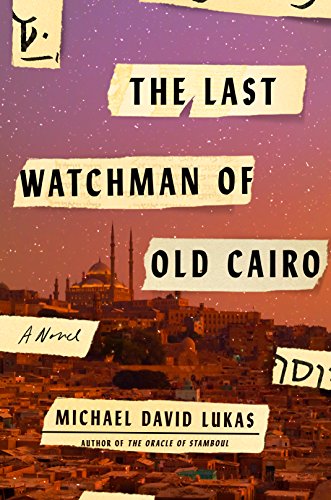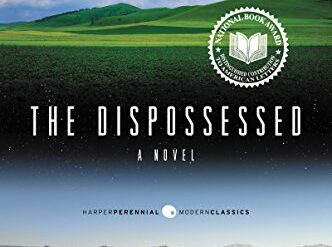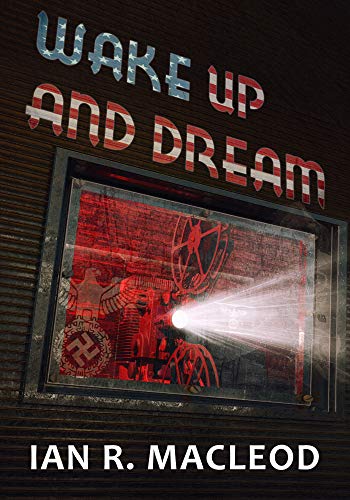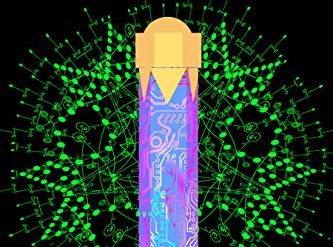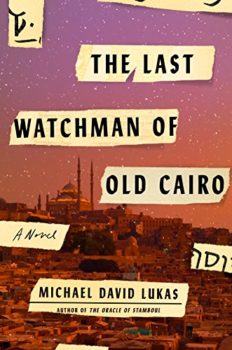
Estimated reading time: 4 minutes
Over the centuries, the relationship between Jews and Muslims has often shifted from intimacy to bitter enmity. In fact, historically, Muslims have been far friendlier to Jews than have Christians. The vitriol spewing out from Islamic extremists today is the most extreme example of the hostility directed at Jews. In my experience, Muslims who are just trying to live their lives in peace have no problem living next door to Jews. In Michael David Lukas’ new novel, The Last Watchman of Old Cairo, the close relationships between people of both faiths illustrate the norm, not the exception.
The scene shifts over the centuries
In his novel, Lukas nimbly shifts the scene in Cairo from the 11th-century to the final years of the 19th, and then to the 21st in Cairo and Berkeley. The narrative strand that connects these three scenes is the family of al-Raqb, which the author translates as “the watcher.” The founder of this nearly 1,000-year dynasty is Ali, a Muslim boy who is 13 years old when the story commences. Over time, Ali gains the name after becoming the night watchman at the ancient ibn Ezra Synagogue in Cairo.
The Last Watchman of Old Cairo by Michael David Lukas (2018) 267 pages ★★★★☆
Winner of the $100,000 Sami Rohr Prize for Jewish Literature
More than 800 years later, his descendent, Muhammad al-Raqb, holds down the same job. In turn, Muhammad’s grandson or great-grandson, Ahmed, guards the ruins of the ancient synagogue as the 21st century approaches.
And his son, Yusuf, or Joseph al-Raqb, is a graduate student at the University of California, Berkeley, who returns to Cairo to learn about the father he knows only barely.
“A perfect Torah scroll, without flaw or innovation”
The most important aspect of Ali al-Raqb’s job is to guard the geniza. This is an attic storeroom where, by Jewish custom, the congregation deposits every scrap of paper that includes one of the names of God. None may be discarded. And, in addition to the marriage contracts, commercial correspondence, and shopping lists in the geniza, there is reportedly a truly ancient scroll, the Ezra Scroll. The scroll is said to be the work of the Prophet Ezra, “a perfect Torah scroll, without flaw or innovation.” In other words, it represents the original version of the Old Testament.
Eight centuries later, in 1897, two fifty-something Scottish women travel to Cairo in search of the Ezra Scroll. They are antiquarians with a specialization in Biblical studies. Together with two well-connected Jews from Britain, they enlist the help of Muhammad al-Raqb in their quest.
A love affair between Muslim and Jew
Yet another century later, Joseph travels to Cairo. After his father died, he had been unable to attend the funeral in Cairo. But a mysterious package that arrives months later leads him to travel there. The package contains a fragment of ancient parchment. We will soon learn that this centuries-old scrap of writing will connect Joseph to his ancestor, Ali al-Raqb, and to the two English ladies.
Joseph is the son of a Muslim father and a Jewish mother. Thus, by Jewish law, he is a Jew. The troubled love between his parents is a central theme in this excellent historical novel.
In the end, Joseph will see himself as the last watchman of the ancient synagogue. “Like my father and his father before him,” he muses, “I am but a watcher, a guardian, protecting the geniza documents, and content to persist in their mystery.” Will he find that “perfect Torah scroll?” Read it and find out.
About the author
Michael David Lukas is a native of Berkeley, California. The Last Watchman of Old Cairo is his second novel. The first, The Oracle of Stamboul, was both a critical and commercial success. He has lived in Cairo and was for a time employed at the UC Berkeley Center for Middle Eastern Studies.
For related reading
I loved Lukas’ earlier novel, The Oracle of Stamboul. My review is at Sheer reading pleasure, with a dollop of magic, in a historical novel.
You’ll find this book on my list of The decade’s top 10 historical novels, mysteries & thrillers, and science fiction.
This is one of the many Good books by Berkeley authors.
If you enjoy reading history in fictional form, check out 20 most enlightening historical novels (plus dozens of runners-up). And if you’re looking for exciting historical novels, check out Top 10 historical mysteries and thrillers. And check out Top 10 great popular novels.
You might find other books of interest to you at Worthy books about Jewish topics. I especially recommend Geraldine Brooks’ outstanding novel, People of the Book, which bears more than a passing resemblance to The Last Watchman. My review is at The strange story of the Sarajevo Hagadah.
And you can always find my most popular reviews, and the most recent ones, on the Home Page.

